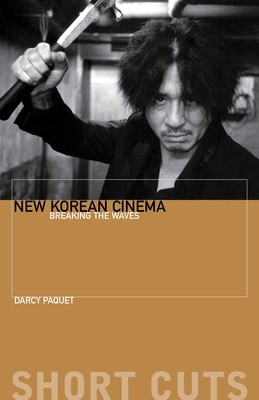
- We will send in 10–14 business days.
- Author: Darcy Paquet
- Publisher: Wallflower Press
- ISBN-10: 1906660255
- ISBN-13: 9781906660253
- Format: 15 x 19.8 x 1.3 cm, minkšti viršeliai
- Language: English
- SAVE -10% with code: EXTRA
Reviews
Description
New Korean Cinema charts the dramatic transformation of South Korea's film industry from the democratization movement of the late 1980s to the 2000s new generation of directors. The author considers such issues as government censorship, the market's embrace of Hollywood films, and the social changes which led to the diversification and surprising commercial strength of contemporary Korean films. Directors such as Hong Sang-soo, Kim Ki-duk, Park Chan-wook, and Bong Joon-ho are studied within their historical context together with a range of films including Sopyonje (1993), Peppermint Candy (1999), Oldboy (2003), and The Host (2006).
EXTRA 10 % discount with code: EXTRA
The promotion ends in 23d.15:42:11
The discount code is valid when purchasing from 10 €. Discounts do not stack.
- Author: Darcy Paquet
- Publisher: Wallflower Press
- ISBN-10: 1906660255
- ISBN-13: 9781906660253
- Format: 15 x 19.8 x 1.3 cm, minkšti viršeliai
- Language: English English
New Korean Cinema charts the dramatic transformation of South Korea's film industry from the democratization movement of the late 1980s to the 2000s new generation of directors. The author considers such issues as government censorship, the market's embrace of Hollywood films, and the social changes which led to the diversification and surprising commercial strength of contemporary Korean films. Directors such as Hong Sang-soo, Kim Ki-duk, Park Chan-wook, and Bong Joon-ho are studied within their historical context together with a range of films including Sopyonje (1993), Peppermint Candy (1999), Oldboy (2003), and The Host (2006).


Reviews